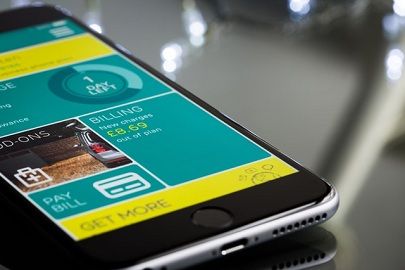 Internet Banking or otherwise known as online banking is among the convenient e-banking modes, which caused the change in banking operations and provides virtual banking facilities to its customers continuously. In this method, the clients can access their bank account details, no matter where they are located, with the help of bank’s website.
Internet Banking or otherwise known as online banking is among the convenient e-banking modes, which caused the change in banking operations and provides virtual banking facilities to its customers continuously. In this method, the clients can access their bank account details, no matter where they are located, with the help of bank’s website.
Internet Banking is not similar to mobile banking, which implies a wireless, internet-based facility provided by the banks to their customers, to operate their bank accounts, through handheld devices such as smartphones, tablets and so forth, with the help of a website or a mobile application.
As the services provided by the two facilities, resembles a lot, there are instances when people assume that they are one and the same, though they are not. In this article excerpt, we are providing you all the important differences between Internet banking and mobile banking, take a read.
Content: Mobile Banking Vs Internet Banking
Comparison Chart
| Basis for Comparison | Mobile Banking | Internet Banking |
|---|---|---|
| Meaning | Mobile banking refers to an internet based facility provided by banks that enables the customers to execute bank transactions, via cellular devices. | Internet banking implies a service that allows the customers to conduct the financial transactions electronically, with the use of internet. |
| Device | Mobiles or Tablets | Computers or Laptops |
| Uses | Short message service, mobile application or website | Bank's website |
| Fund transfer | Through NEFT or RTGS | Through NEFT, RTGS or IMPS |
| Functions | Limited | Comparatively more |
Definition of Mobile Banking
Mobile banking can be described as the facility provided by the banks to its clients, in which they can access their bank accounts and undertake monetary transactions remotely using mobile telecommunication devices like smartphones, tablet or cellular device. It can take place through short message service (SMS), mobile web or application. The customer can avail this service anytime and anywhere.
Transactions that take place through mobile banking includes online payment of bills, locating an ATM, fund transfer, monitoring account balances, the list of latest transactions, m-commerce, mobile/DTH top-up, etc. Further, the mobile banking also offers advanced security by sending alerts or notifications on the registered mobile number, on the account’s activity.
Definition of Internet Banking
Internet Banking can be understood as the banking method, in which the financial transactions are conducted with te help of internet. It is like a revolution, in the era of the traditional banking system, which does not require customers to visit the bank branch to proceed a simple bank transaction.
Put simply; internet banking is an electronic payment system, that allows the bank account holder to execute the monetary transaction, such as bill payments, fund transfer, stop payment, balance enquiries, etc. anytime and anywhere using the bank’s website. Online banking is part and parcel of the core banking system handled by the bank.
Any customer of the bank can avail this facility by registering, with the concerned bank for the facility and set up the password and other credentials for account holder’s verification. After that, the bank will allocate customer number called as Personal Identification Number (PIN), which is linked to the bank account, held by the customer.
Key Differences Between Mobile Banking and Internet Banking
The difference between mobile and internet banking can be drawn clearly on the following grounds:
- Internet banking is nothing but a banking transaction, carried out over the internet, via, respective bank or financial institution’s website, under a personal profile, with a personal computer. Conversely, mobile banking is a service that enables the customer to perform banking transactions using a cellular device.
- Mobile banking can be performed with the help of mobile telecommunication devices, i.e. Mobiles or Tablets. On the contrary, for conducting internet banking transaction, one needs to use devices like computers or laptops.
- Mobile banking uses Short message service, mobile application or the web. In contrast, Internet Banking uses bank’s website
- In mobile banking, fund transfer is possible with the help of IMPS (Immediate Payment Service), NEFT (National Electronics Funds Transfer System) or RTGS (Real Time Gross Settlement). As against, in internet banking, funds can be transferred from one bank or branch to another, with the help of NEFT (National Electronics Funds Transfer System) or RTGS (Real Time Gross Settlement).
- While the number of functions performed by Mobile banking system is limited, internet banking offers an array of services to their customers.
Conclusion
Both internet banking and mobile banking require internet access, to carry out the banking transaction and have a variety of uses. The scope of internet banking is relatively higher than that of mobile banking because the latter is a part of the former.






David Sambia says
Very informative!